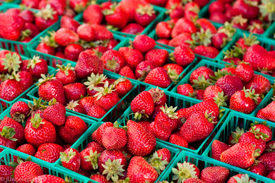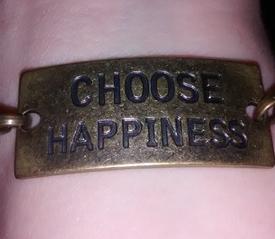Addiction

Pillowcrunch
Posts: 4 Member
Does anyone think that food is an addiction? I love food, way too much. I feel like an addict. Opinions welcomed.
0
Replies
-
Pillowcrunch wrote: »Does anyone think that food is an addiction? I love food, way too much. I feel like an addict. Opinions welcomed.
Nope. Sorry but I do not. I have never heard of someone taking out second mortgages on their home or selling their body to support their food "addiction".0 -
Yes. Just today, I had to pick up my daughter from school and take her directly to an appt, because of this I stopped at a fast food place to get her a quick bite. It was so hard to not get myself something too. I wasn't hungry, but Man that greasy food smelled wonderful! To resist eating one of her fries took everything I had.0
-
cdgroves121 wrote: »Yes. Just today, I had to pick up my daughter from school and take her directly to an appt, because of this I stopped at a fast food place to get her a quick bite. It was so hard to not get myself something too. I wasn't hungry, but Man that greasy food smelled wonderful! To resist eating one of her fries took everything I had.
you could have bought it, logged it, and eaten it if it fit your calories.0 -
cdgroves121 wrote: »Yes. Just today, I had to pick up my daughter from school and take her directly to an appt, because of this I stopped at a fast food place to get her a quick bite. It was so hard to not get myself something too. I wasn't hungry, but Man that greasy food smelled wonderful! To resist eating one of her fries took everything I had.
That is not an addiction.0 -
I think people can get addicted to the biological good feelings that sugar and certain simple carbs provide. They affect the brain in some people much more than others. I think some people feel out of control and have difficulty eating these foods in moderation. Sugar has been proven (on pet scans) to light up the same areas of the brain as cocaine does. Call it what you want. Many will say IIFYM however, some of us cant do moderation, thats why we got big in the first place.0
-
Since I started really paying attention to my macros food is more like a game. I love carbs and it's a challenge to keep them down and my protein and fat up.0
-
Pillowcrunch wrote: »Does anyone think that food is an addiction? I love food, way too much. I feel like an addict. Opinions welcomed.
Nope. Sorry but I do not. I have never heard of someone taking out second mortgages on their home or selling their body to support their food "addiction".
If food cost as much as drugs you might. A lot of food is cheap and readily available.
-1 -
Food is an addiction. But only those who have seriously had out of control binges and gone into a literal food coma can understand.0
-
Pillowcrunch wrote: »Does anyone think that food is an addiction? I love food, way too much. I feel like an addict. Opinions welcomed.
Nope. Sorry but I do not. I have never heard of someone taking out second mortgages on their home or selling their body to support their food "addiction".
If food cost as much as drugs you might. A lot of food is cheap and readily available.
I don't know where you live, but by me, drugs aren't exactly "expensive". Also- people have used money that should have been used for other things (like their kids and homes) to pay for drugs/alcohol because they use that much of it. How many people do you know that spend every last cent they own to pay for a binge, knowing that by doing so they will end up on the street? I'm not saying it is impossible, I am saying that food "addiction" is NOT an addiction in the true sense of the word. Addictions tend to significantly impact someone's life (loss of job, homeless, not having enough money to eat or feed their kids) and their life become centered around the addiction. Most of those individuals cannot practice moderation with the substance and if they have any hope of recovery, have to cut it out completely. Simply put- you can not live without food.0 -
Pillowcrunch wrote: »Does anyone think that food is an addiction? I love food, way too much. I feel like an addict. Opinions welcomed.
Nope. Sorry but I do not. I have never heard of someone taking out second mortgages on their home or selling their body to support their food "addiction".
If food cost as much as drugs you might. A lot of food is cheap and readily available.
Good point.
0 -
I think it is an addiction. I know personally I have food on my mind all the time.0
-
Personally, I think it's an excuse. Rather than dealing with the stresses of life, one chooses to eat. Then claims that they can't deal with life without food. They eat because it tastes good and they like the feeling. But they don't want to take responsibility for it and have the discipline to say no… so they have created "food addiction" as a way of excusing themselves.
edited to add: This is just my opinion. But it comes from someone who started off at 381 pounds… with no injuries or medical problems, therefore most of the civilized world would think I had a food addiction.0 -
This content has been removed.
-
Follow your heart and eat when you really "want to". But please remember while we eat to live, we not live to eat, especially junk food.0
-
emmab852012 wrote: »I think it is an addiction. I know personally I have food on my mind all the time.
Just because you have food on your mind does not make it an addiction.0 -
I think comparing garden variety cravings for junk food to an addiction is insulting both to people struggling with disordered eating and with actual addictions. Can you use food as an emotional crutch to avoid dealing with *kitten*? Yeah, absolutely. Is that the same as someone on heroin? God, no. Absolutely not.
Compulsive eating is a thing, keep in mind. It's an actual condition, but it's debilitating. It's life-destroying. People suffering from compulsive eating can knock out up to 15,000 calories a day during a binge. Compulsive overeaters often do lie, cheat and steal to support their habit, and they generally cannot stop without help. That's classic addiction territory right there. Struggling to pass up the cheeseburger when grabbing your kid a happy meal is not.-1 -
Mariam-Webster defines addiction as a strong or harmful need to have something or do something. Is there a strong need for food, either to cope with stress or to fill a reaction from the body? Eating is certainly habit-forming. No one is saying that it does not take discipline to overcome this habit/addiction. The same is true of any other addiction.
Alcoholics are vigilant, there is a fight everyday to stay sober. There are support structures like AA in place. During meetings people share there thoughts, struggles and cravings. After certain steps are achieved, a sponsor is chosen to help personally guide you through you journey.
In the same way, eating helps people cope with their problems. It is a comforting method of escaping from the real world and its tribulations. If done in excess, it can be very harmful and deadly. When you decide eating has damaged your life enough to make a change, you seek help. After finding that help, you need to be constantly vigilant over your eating, or you may fall prey to over-eating again.
It certainly fits the definition of addiction, and it has a striking number of similarities to other accredited addictions. The difference with food is that we must have it in order to live. An alcoholic can swear off alchol, a drug addict can stop using completely. Someone who is addicted to food still has to eat. Imagine a heavy scotch drinker trying to conquer alcoholism by being told cut back on their scotch intake, or switch to beer! Not going to work. Food can be a very dangerous and addictive stub stance. Failure to recognize that fact is even more dangerous.0 -
Yale University believes that food addiction is real. Not sure where i sit in this debate.
http://www.webmd.com/mental-health/mental-health-food-addiction
Experiments in animals and humans show that, for some people, the same reward and pleasure centers of the brain that are triggered by addictive drugs like cocaine and heroin are also activated by food, especially highly palatable foods.-1 -
Mariam-Webster defines addiction as a strong or harmful need to have something or do something. Is there a strong need for food, either to cope with stress or to fill a reaction from the body? Eating is certainly habit-forming. No one is saying that it does not take discipline to overcome this habit/addiction. The same is true of any other addiction.
Alcoholics are vigilant, there is a fight everyday to stay sober. There are support structures like AA in place. During meetings people share there thoughts, struggles and cravings. After certain steps are achieved, a sponsor is chosen to help personally guide you through you journey.
In the same way, eating helps people cope with their problems. It is a comforting method of escaping from the real world and its tribulations. If done in excess, it can be very harmful and deadly. When you decide eating has damaged your life enough to make a change, you seek help. After finding that help, you need to be constantly vigilant over your eating, or you may fall prey to over-eating again.
It certainly fits the definition of addiction, and it has a striking number of similarities to other accredited addictions. The difference with food is that we must have it in order to live. An alcoholic can swear off alchol, a drug addict can stop using completely. Someone who is addicted to food still has to eat. Imagine a heavy scotch drinker trying to conquer alcoholism by being told cut back on their scotch intake, or switch to beer! Not going to work. Food can be a very dangerous and addictive stub stance. Failure to recognize that fact is even more dangerous.
No it is not the same and saying that it is trivializing actual addictions.0 -
cincysweetheart wrote: »Personally, I think it's an excuse. Rather than dealing with the stresses of life, one chooses to eat. Then claims that they can't deal with life without food. They eat because it tastes good and they like the feeling. But they don't want to take responsibility for it and have the discipline to say no… so they have created "food addiction" as a way of excusing themselves.
edited to add: This is just my opinion. But it comes from someone who started off at 381 pounds… with no injuries or medical problems, therefore most of the civilized world would think I had a food addiction.
tbh this sounds like a milder form of addiction, the reasoning you used here is a lot of the same that addicts use to support their habits. Addiction is psychological and physical.0 -
Mariam-Webster defines addiction as a strong or harmful need to have something or do something. Is there a strong need for food, either to cope with stress or to fill a reaction from the body? Eating is certainly habit-forming. No one is saying that it does not take discipline to overcome this habit/addiction. The same is true of any other addiction.
Alcoholics are vigilant, there is a fight everyday to stay sober. There are support structures like AA in place. During meetings people share there thoughts, struggles and cravings. After certain steps are achieved, a sponsor is chosen to help personally guide you through you journey.
In the same way, eating helps people cope with their problems. It is a comforting method of escaping from the real world and its tribulations. If done in excess, it can be very harmful and deadly. When you decide eating has damaged your life enough to make a change, you seek help. After finding that help, you need to be constantly vigilant over your eating, or you may fall prey to over-eating again.
It certainly fits the definition of addiction, and it has a striking number of similarities to other accredited addictions. The difference with food is that we must have it in order to live. An alcoholic can swear off alchol, a drug addict can stop using completely. Someone who is addicted to food still has to eat. Imagine a heavy scotch drinker trying to conquer alcoholism by being told cut back on their scotch intake, or switch to beer! Not going to work. Food can be a very dangerous and addictive stub stance. Failure to recognize that fact is even more dangerous.
No it is not the same and saying that it is trivializing actual addictions.
So then you believe a person can only be addicted to something if it is an illegal or controlled substance?0 -
CarrieCans wrote: »Mariam-Webster defines addiction as a strong or harmful need to have something or do something. Is there a strong need for food, either to cope with stress or to fill a reaction from the body? Eating is certainly habit-forming. No one is saying that it does not take discipline to overcome this habit/addiction. The same is true of any other addiction.
Alcoholics are vigilant, there is a fight everyday to stay sober. There are support structures like AA in place. During meetings people share there thoughts, struggles and cravings. After certain steps are achieved, a sponsor is chosen to help personally guide you through you journey.
In the same way, eating helps people cope with their problems. It is a comforting method of escaping from the real world and its tribulations. If done in excess, it can be very harmful and deadly. When you decide eating has damaged your life enough to make a change, you seek help. After finding that help, you need to be constantly vigilant over your eating, or you may fall prey to over-eating again.
It certainly fits the definition of addiction, and it has a striking number of similarities to other accredited addictions. The difference with food is that we must have it in order to live. An alcoholic can swear off alchol, a drug addict can stop using completely. Someone who is addicted to food still has to eat. Imagine a heavy scotch drinker trying to conquer alcoholism by being told cut back on their scotch intake, or switch to beer! Not going to work. Food can be a very dangerous and addictive stub stance. Failure to recognize that fact is even more dangerous.
No it is not the same and saying that it is trivializing actual addictions.
So then you believe a person can only be addicted to something if it is an illegal or controlled substance?
Nope. Where did I ever say that?0 -
Learned response or not, I do crave sweets and carbs when I am stressed. In my case, I was obese as a child so it's been a life long battle. I treated myself to a Dunkin' Donuts pumpkin latte last Fall, and it was super sweet. After the first sip, I was surprised at how much I just wanted to take sip after sip. I was appalled at how sweet it was and how my body was loving it. When I am stressed and I have sweets, I feel my whole body relax. In my head I imagine that's how an addict feels. There is a weight loss group, similar to AA, called Overeaters Anonymous.0
-
poohpoohpeapod wrote: »I think people can get addicted to the biological good feelings that sugar and certain simple carbs provide. They affect the brain in some people much more than others. I think some people feel out of control and have difficulty eating these foods in moderation. Sugar has been proven (on pet scans) to light up the same areas of the brain as cocaine does. Call it what you want. Many will say IIFYM however, some of us cant do moderation, thats why we got big in the first place.
The bolded part, everyone can do moderation if you work on it and learn it, we didn't get big because we're unable to moderate our intake, it's cause we never worked on learning how. It's not something you just figure out, it takes thought and effort.
As for food being an addiction, for most no, for those dealing with eating disorders maybe.
But the way the word addiction is thrown around is insulting to those that deal with true addictions. When you are willing to sell your body, steal from your family to get your daily burger fix ... than yea call it an addiction. If not, no you just need to work on learning how to moderate and work on your willpower muscle.
0 -
CarrieCans wrote: »Mariam-Webster defines addiction as a strong or harmful need to have something or do something. Is there a strong need for food, either to cope with stress or to fill a reaction from the body? Eating is certainly habit-forming. No one is saying that it does not take discipline to overcome this habit/addiction. The same is true of any other addiction.
Alcoholics are vigilant, there is a fight everyday to stay sober. There are support structures like AA in place. During meetings people share there thoughts, struggles and cravings. After certain steps are achieved, a sponsor is chosen to help personally guide you through you journey.
In the same way, eating helps people cope with their problems. It is a comforting method of escaping from the real world and its tribulations. If done in excess, it can be very harmful and deadly. When you decide eating has damaged your life enough to make a change, you seek help. After finding that help, you need to be constantly vigilant over your eating, or you may fall prey to over-eating again.
It certainly fits the definition of addiction, and it has a striking number of similarities to other accredited addictions. The difference with food is that we must have it in order to live. An alcoholic can swear off alchol, a drug addict can stop using completely. Someone who is addicted to food still has to eat. Imagine a heavy scotch drinker trying to conquer alcoholism by being told cut back on their scotch intake, or switch to beer! Not going to work. Food can be a very dangerous and addictive stub stance. Failure to recognize that fact is even more dangerous.
No it is not the same and saying that it is trivializing actual addictions.
So then you believe a person can only be addicted to something if it is an illegal or controlled substance?
Nope. Where did I ever say that?
I didn't say you said it. I was asking because it appears that you believe a person who thinks that food addiction is real is trivializing actual addictions.
I may have read that wrong.0 -
CarrieCans wrote: »CarrieCans wrote: »Mariam-Webster defines addiction as a strong or harmful need to have something or do something. Is there a strong need for food, either to cope with stress or to fill a reaction from the body? Eating is certainly habit-forming. No one is saying that it does not take discipline to overcome this habit/addiction. The same is true of any other addiction.
Alcoholics are vigilant, there is a fight everyday to stay sober. There are support structures like AA in place. During meetings people share there thoughts, struggles and cravings. After certain steps are achieved, a sponsor is chosen to help personally guide you through you journey.
In the same way, eating helps people cope with their problems. It is a comforting method of escaping from the real world and its tribulations. If done in excess, it can be very harmful and deadly. When you decide eating has damaged your life enough to make a change, you seek help. After finding that help, you need to be constantly vigilant over your eating, or you may fall prey to over-eating again.
It certainly fits the definition of addiction, and it has a striking number of similarities to other accredited addictions. The difference with food is that we must have it in order to live. An alcoholic can swear off alchol, a drug addict can stop using completely. Someone who is addicted to food still has to eat. Imagine a heavy scotch drinker trying to conquer alcoholism by being told cut back on their scotch intake, or switch to beer! Not going to work. Food can be a very dangerous and addictive stub stance. Failure to recognize that fact is even more dangerous.
No it is not the same and saying that it is trivializing actual addictions.
So then you believe a person can only be addicted to something if it is an illegal or controlled substance?
Nope. Where did I ever say that?
I didn't say you said it. I was asking because it appears that you believe a person who thinks that food addiction is real is trivializing actual addictions.
I may have read that wrong.
You are correct. I do not believe food is an actual addiction. How many people do you know that lost their jobs because they couldn't stop eating? How many have ended up in shelters from spending too much on food? How many started selling their body to pay for the food? How many had their children taken away from them because their "addiction" made CPS believe they are an unfit parent?0 -
CarrieCans wrote: »CarrieCans wrote: »Mariam-Webster defines addiction as a strong or harmful need to have something or do something. Is there a strong need for food, either to cope with stress or to fill a reaction from the body? Eating is certainly habit-forming. No one is saying that it does not take discipline to overcome this habit/addiction. The same is true of any other addiction.
Alcoholics are vigilant, there is a fight everyday to stay sober. There are support structures like AA in place. During meetings people share there thoughts, struggles and cravings. After certain steps are achieved, a sponsor is chosen to help personally guide you through you journey.
In the same way, eating helps people cope with their problems. It is a comforting method of escaping from the real world and its tribulations. If done in excess, it can be very harmful and deadly. When you decide eating has damaged your life enough to make a change, you seek help. After finding that help, you need to be constantly vigilant over your eating, or you may fall prey to over-eating again.
It certainly fits the definition of addiction, and it has a striking number of similarities to other accredited addictions. The difference with food is that we must have it in order to live. An alcoholic can swear off alchol, a drug addict can stop using completely. Someone who is addicted to food still has to eat. Imagine a heavy scotch drinker trying to conquer alcoholism by being told cut back on their scotch intake, or switch to beer! Not going to work. Food can be a very dangerous and addictive stub stance. Failure to recognize that fact is even more dangerous.
No it is not the same and saying that it is trivializing actual addictions.
So then you believe a person can only be addicted to something if it is an illegal or controlled substance?
Nope. Where did I ever say that?
I didn't say you said it. I was asking because it appears that you believe a person who thinks that food addiction is real is trivializing actual addictions.
I may have read that wrong.
You are correct. I do not believe food is an actual addiction. How many people do you know that lost their jobs because they couldn't stop eating? How many have ended up in shelters from spending too much on food? How many started selling their body to pay for the food? How many had their children taken away from them because their "addiction" made CPS believe they are an unfit parent?
I have had problems with addiction. It has never lost me a job, never landed me in a shelter, i have never sold my body, and i have never "lost" a child over it. I have however had issues with working, had frequent moves and even lived in cars and other peoples couches, considered doing demeaning or immoral things and voluntarily gave custody of a child to a family member.
I guess i wasted a lot of time dealing with something that wasn't actually an addiction after all. I never knew it was a requirement to let yourself get that low before you try to do something about it.0 -
Nope0
-
CarrieCans wrote: »CarrieCans wrote: »CarrieCans wrote: »Mariam-Webster defines addiction as a strong or harmful need to have something or do something. Is there a strong need for food, either to cope with stress or to fill a reaction from the body? Eating is certainly habit-forming. No one is saying that it does not take discipline to overcome this habit/addiction. The same is true of any other addiction.
Alcoholics are vigilant, there is a fight everyday to stay sober. There are support structures like AA in place. During meetings people share there thoughts, struggles and cravings. After certain steps are achieved, a sponsor is chosen to help personally guide you through you journey.
In the same way, eating helps people cope with their problems. It is a comforting method of escaping from the real world and its tribulations. If done in excess, it can be very harmful and deadly. When you decide eating has damaged your life enough to make a change, you seek help. After finding that help, you need to be constantly vigilant over your eating, or you may fall prey to over-eating again.
It certainly fits the definition of addiction, and it has a striking number of similarities to other accredited addictions. The difference with food is that we must have it in order to live. An alcoholic can swear off alchol, a drug addict can stop using completely. Someone who is addicted to food still has to eat. Imagine a heavy scotch drinker trying to conquer alcoholism by being told cut back on their scotch intake, or switch to beer! Not going to work. Food can be a very dangerous and addictive stub stance. Failure to recognize that fact is even more dangerous.
No it is not the same and saying that it is trivializing actual addictions.
So then you believe a person can only be addicted to something if it is an illegal or controlled substance?
Nope. Where did I ever say that?
I didn't say you said it. I was asking because it appears that you believe a person who thinks that food addiction is real is trivializing actual addictions.
I may have read that wrong.
You are correct. I do not believe food is an actual addiction. How many people do you know that lost their jobs because they couldn't stop eating? How many have ended up in shelters from spending too much on food? How many started selling their body to pay for the food? How many had their children taken away from them because their "addiction" made CPS believe they are an unfit parent?
I have had problems with addiction. It has never lost me a job, never landed me in a shelter, i have never sold my body, and i have never "lost" a child over it. I have however had issues with working, had frequent moves and even lived in cars and other peoples couches, considered doing demeaning or immoral things and voluntarily gave custody of a child to a family member.
I guess i wasted a lot of time dealing with something that wasn't actually an addiction after all. I never knew it was a requirement to let yourself get that low before you try to do something about it.
You are totally missing the point. That is the path that actual addictions take if they are let go. Do some get help before they reach rock bottom? Yes. However for those who don't get help- that is eventually where their life leads.0 -
cincysweetheart wrote: »Personally, I think it's an excuse. Rather than dealing with the stresses of life, one chooses to eat. Then claims that they can't deal with life without food. They eat because it tastes good and they like the feeling. But they don't want to take responsibility for it and have the discipline to say no… so they have created "food addiction" as a way of excusing themselves.
edited to add: This is just my opinion. But it comes from someone who started off at 381 pounds… with no injuries or medical problems, therefore most of the civilized world would think I had a food addiction.
tbh this sounds like a milder form of addiction, the reasoning you used here is a lot of the same that addicts use to support their habits. Addiction is psychological and physical.
Good point. I better clarify. Addiction and chemical dependency is often used interchangeably and I was doing that. There is an actual chemical dependency that goes on with alcohol and drugs that they will have to deal with once they decide to quit… something that doesn't really exist with food (aside from the sheer obvious fact that we need a certain amount of food to survive) or other addictions.
But yes, as you stated... the reasoning is the same. Alcoholics/drug addicts do the same thing. They like how it makes them feel and rather than dealing with stresses of life, they drink/use then claim they can't deal with out it.
As to other addictions… sex, porn, gambling, etc. I believe they fall into the same category as "food addiction." They like how it makes them feel. They use it instead of dealing with life's stresses then call it an addiction to avoid taking responsibility for themselves. Addiction has a "disease" connotation in society today, as if they are somehow victims of something that is beyond their control and therefore can't be held responsible for it. That is why I think food "addiction" (or any of those others) is more just an excuse.
And for the record… I am one of those who had one of those "other addictions." And I believe that everything I just said applies to me too. So, I'm not saying this as one who has never been there and "just doesn't get it." Believe me. I get it. Big time.0
This discussion has been closed.
Categories
- All Categories
- 1.4M Health, Wellness and Goals
- 398.1K Introduce Yourself
- 44.7K Getting Started
- 261K Health and Weight Loss
- 176.4K Food and Nutrition
- 47.7K Recipes
- 233K Fitness and Exercise
- 462 Sleep, Mindfulness and Overall Wellness
- 6.5K Goal: Maintaining Weight
- 8.7K Goal: Gaining Weight and Body Building
- 153.5K Motivation and Support
- 8.4K Challenges
- 1.4K Debate Club
- 96.5K Chit-Chat
- 2.6K Fun and Games
- 4.8K MyFitnessPal Information
- 12 News and Announcements
- 21 MyFitnessPal Academy
- 1.5K Feature Suggestions and Ideas
- 3.2K MyFitnessPal Tech Support Questions

















